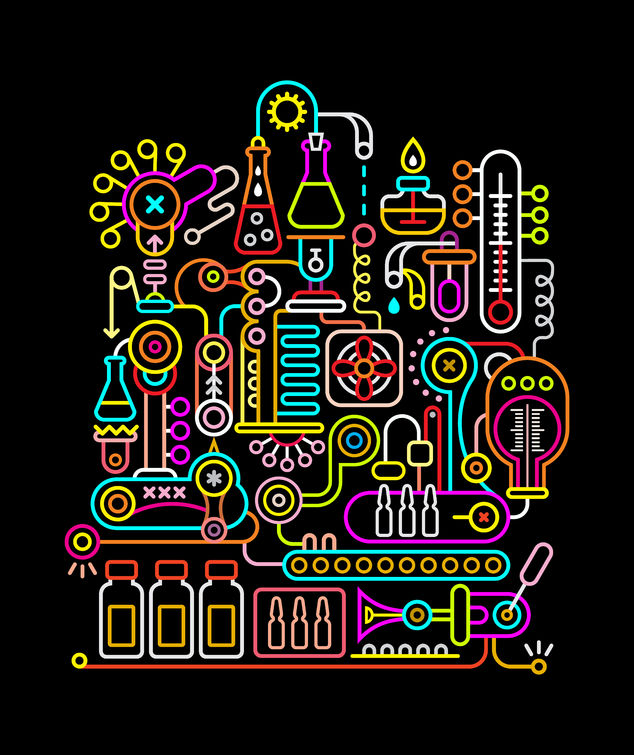Understanding the skills chemical engineering employers look for
There are certain skills that are important to many employers when they are hiring an engineer. The recruiting process has evolved greatly as employers analyze the skills, interests and personality that will best match their needs. The role of an engineer has expanded over the past years as the demand for groundbreaking innovations has risen.
We have put together a few skills and why they are important for an aspiring engineer:
Teamwork Skills
Very rarely will one engineer solve a problem by themselves. It’s much more common for the team to hash out ideas with each other until they come up with a viable solution.
This is reflected in most engineering programs. You probably did several group projects. Those projects and experiences will serve you well long after you’ve entered the engineering field. They form the basis of your teamwork skills. Keep improving those skills to really stand out from the crowd.
Creativity
Employers want to hire an engineer who will be able to come up with different solutions to an existing problem. A technically brilliant engineer with little imagination is unlikely to add any value to the organisation and will have a difficult time with different projects. An engineer who can channel their creative vision through careful planning and an inventive use of existing resources is a valuable asset to any organisation.
Communication
Communication is a big part of working life. You will find yourself spending a lot of time in discussion with customers and making decisions. You will need to be able to build relationships with both colleagues and clients. Not everybody you speak to will understand the technical jargon so you will also need to be good at conveying your thoughts clearly and simply.
Recruiters will be assessing your communication skills so make sure you send in a well-written application and be polite but confident in person. Be prepared to give examples of when you’ve used your interpersonal skills. For example, maybe you’ve worked in customer service or you spent the summer teaching English abroad.
STEM Knowledge and Skills
Of course, employers who are looking to hire engineers need the people they hire to have engineering skills. Engineers should have a solid foundation in science, technology, engineering, and math (STEM).
This is particularly true if you’re a biological engineer or a chemical engineer. Not only do you need good engineering skills, you also need a solid science foundation in your respective discipline. Every engineer should have a fundamental understanding of physics, in addition to chemistry and biology.
Motivated to continue learning
The engineering field constantly has new developments as it is influenced by technology, which changes rapidly. Employers can detect a successful engineer by how keen they are to keep abreast of new skills, research and ideas that come up. The willingness of an engineer to refresh their education shows that they are open to new advances and will keep the organization at the fore front of their competitors in that area.
Problem Solving and Critical Thinking
If you believe in Murphy’s Law, you know that technical problems, miscommunications and misunderstandings will happen, bringing with them the risks of stalling or derailing a project or causing tension between team members. This makes problem solving and critical thinking essential soft skills for any engineer.
When these issues inevitably crop up, you need to be able to identify, assess and analyze complex problems, quickly make decisions about how to handle the situation and then offer and implement solutions.
A Detail-Oriented Nature
Engineering is one of those disciplines where even the smallest detail can make the largest difference. As a result, employers look for engineers whose skill sets include being detail-oriented.
You don’t need to be the most meticulous person ever to be a successful engineer, but double-checking your work and looking out for the small details will certainly help.
Engineers in any field or specialization should master these essential engineering skills. You may believe your specialized, hard skills are the key to your success, but these softer skills matter.
Mathematical Aptitude
Typically, engineering involves complex calculations of varying difficulty. All engineers need to have excellent math skills as they need to know how to manipulate complex formulas to ensure their system or design will function appropriately. A slight miscalculation can render an entire system’s design useless. While not all engineering jobs may require one to perform complex derivative equations as a part of their everyday routine, there is still a need to be well-versed in trigonometry and calculus so as to use the software that has become an integral part of the practice of modern engineering.
Business and Management Techniques
An engineer who holds a senior level position or plans on starting their own company is expected to possess sound business and management skills in order to be successful. Engineering managers are expected to be leaders not only within the organisation but in their industry and society as well. Employers seek individuals who understand economic and financial issues and are comfortable working within a business-oriented environment.
Not sure which engineering courses are suited to you? Find out more about the chemical engineering course at London TFE and book onto our chemical courses.
 All Courses
All Courses
 Accounting and Finance
Accounting and Finance Administration and Office Management
Administration and Office Management Business Administration
Business Administration Chemical Engineering
Chemical Engineering Communications and Public Relations (PR)
Communications and Public Relations (PR) Compliance and Legal
Compliance and Legal Construction Management
Construction Management Contract and Project Management
Contract and Project Management Customer Experience and Relationship Management
Customer Experience and Relationship Management Data Management and Business Intelligent
Data Management and Business Intelligent Digital Transformation
Digital Transformation Energy and Sustainability
Energy and Sustainability Health, Safety and Environment
Health, Safety and Environment Healthcare Management
Healthcare Management Hospitality & Tourism
Hospitality & Tourism Human Resources and Talent Development
Human Resources and Talent Development Industrial Manufacturing and Production
Industrial Manufacturing and Production Innovation and Artificial Intelligence (AI)
Innovation and Artificial Intelligence (AI) Leadership and Management
Leadership and Management Oil and Gas
Oil and Gas Procurement & Supply Chain Management
Procurement & Supply Chain Management Public Sector
Public Sector Quality and Productivity
Quality and Productivity Retail and E- Commerce
Retail and E- Commerce Sales and Marketing
Sales and Marketing Sports Event Management and Operations
Sports Event Management and Operations Strategy and Business Planning
Strategy and Business Planning Sustainability and CSR
Sustainability and CSR Learning Solutions
Learning Solutions
 About Us
About Us
 iLearn Blog
iLearn Blog
 Directory Calendar
Directory Calendar
 Contact Us
Contact Us
 All Courses
All Courses
 Accounting and Finance
Accounting and Finance Administration and Office Management
Administration and Office Management Business Administration
Business Administration Chemical Engineering
Chemical Engineering Communications and Public Relations (PR)
Communications and Public Relations (PR) Compliance and Legal
Compliance and Legal Construction Management
Construction Management Contract and Project Management
Contract and Project Management Customer Experience and Relationship Management
Customer Experience and Relationship Management Data Management and Business Intelligent
Data Management and Business Intelligent Digital Transformation
Digital Transformation Energy and Sustainability
Energy and Sustainability Health, Safety and Environment
Health, Safety and Environment Healthcare Management
Healthcare Management Hospitality & Tourism
Hospitality & Tourism Human Resources and Talent Development
Human Resources and Talent Development Industrial Manufacturing and Production
Industrial Manufacturing and Production Innovation and Artificial Intelligence (AI)
Innovation and Artificial Intelligence (AI) Leadership and Management
Leadership and Management Oil and Gas
Oil and Gas Procurement & Supply Chain Management
Procurement & Supply Chain Management Public Sector
Public Sector Quality and Productivity
Quality and Productivity Retail and E- Commerce
Retail and E- Commerce Sales and Marketing
Sales and Marketing Sports Event Management and Operations
Sports Event Management and Operations Strategy and Business Planning
Strategy and Business Planning Sustainability and CSR
Sustainability and CSR Learning Solutions
Learning Solutions
 About Us
About Us
 iLearn Blog
iLearn Blog Directory Calendar
Directory Calendar
 Contact Us
Contact Us














































 Course category
Course category Course Venue
Course Venue
